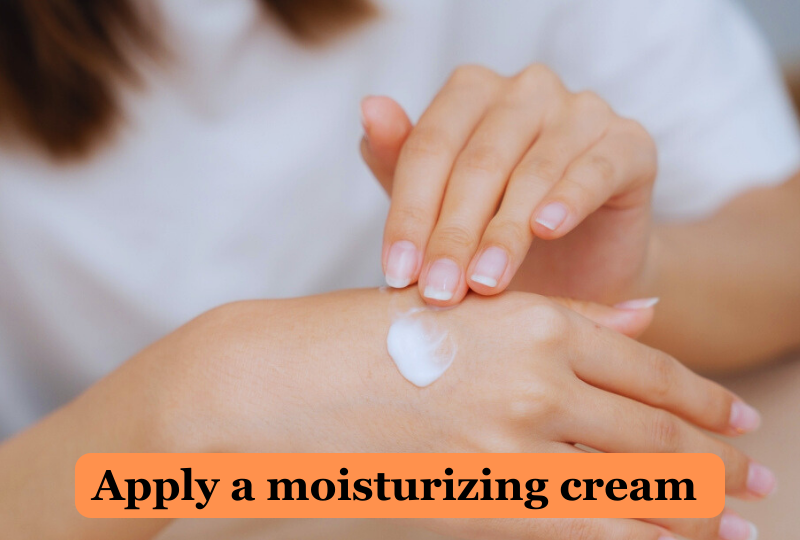The harsh winter weather can do terrible things to your skin. What truly transpires when a snow storm hits? Well, extreme cold and heat, protracted hot showers, or dry air from interior heat can strip the skin’s natural moisturizers and harm its water barrier. Skin that has a weak or damaged water barrier will be unable to retain moisture, leaving it dry, itchy, and dull. A healthy water barrier, on the other hand, functions as a barrier to block out irritants and hold in moisture, keeping skin supple, sound, and hydrated. How can you then prevent the drawbacks of dry and winter skin? Here are some suggestions for skin hydration in winter.
What causes dry skin in the winter?
The stratum corneum is a layer that keeps the skin’s moisture in check. This outer wall holds onto water while obstructing the entry of contaminants, bacteria, and allergies. The layer is compared by Dr. Waldman as a fortifying brick wall: Skin cells are linked together like bricks by a variety of proteins and lipids. Together, proteins and lipids create a barrier. Dry skin is a result of water escaping from this barrier more readily throughout the winter when humidity levels drop.
Causes of dry skin in wintertime
Wintertime moisture loss is a constant issue. The skin can get extremely dry from the wind, the cold air outside, and the forced air heating in buildings.
Additional factors that may contribute to dry skin in the winter include:
- Decrease the temperature and humidity outdoors, making the air chilly and dry, promoting evaporation and drying of moisture from the skin.
- Decrease the humidity inside the house by utilizing fireplaces, stoves, wood stoves, and central heating.
- Too hot of a shower or bath will strip your skin of its natural oils, causing it to lose moisture more quickly. Taking a swim in a pool with a lot of chlorine can have the same result.
- Oil from the skin, especially natural oil, is removed by harsh cleansers and soaps, like many popular shampoos, which causes dryness.
Suggestions for skin hydration in winter
1. Cleansing
Begin each day’s routine with a light cleanse. All of your winter skincare products, especially your cleanser, must avoid drying out your skin. Select a cleanser without phthalates and sulfates because these substances frequently strip the skin’s natural oils from regenerating. If you have especially dry skin, try applying a cream or formula, and make sure you’re heated (not hot!) Use water: Hot water aggravates and further dries out the skin.

2. Apply a moisturizing cream
An efficient moisturizer that hydrates the skin is the best defense against dry winter skin. Before the winter cold sets in, using a daily moisturizer will put you on the right track and build a solid, healthy water barrier. Ceramides and glycerin are the best moisturizing components, so look no further. They assist the lotion in repairing the barrier and preserving the skin’s moisture.
Advice: Don’t always go for thicker. Lotions that are thick have a tendency to be heavy and oily and don’t always have more hydrating qualities.
The following moisturizers are particularly beneficial for dry winter skin:
- Dermatologists created the CeraVe Daily Moisturizing Lotion for skin hydration in winter, which has three important ceramides and hyaluronic acid to hydrate the skin and preserve the moisture barrier.
- Ultra Facial Cream from Kiehl’s: This lightweight face cream was created with cooled glycoprotein and olive squalane specifically to assist your skin resist cold and dry conditions.
- This soothing hand and body cream from Nivea combines vitamin E and jojoba oil. It swiftly absorbs into the skin because to its lightweight nature.
3. Don’t take long, hot showers
It is normal to desire to take a lengthy, hot, steamy shower or bath when the winter cold hits, but not right away. In the winter, hot water is your skin’s worst enemy. This might cause the skin’s natural moisture to evaporate more quickly. You should also keep your shower (or bath) duration to a minimum. It’s best to keep them to five to ten minutes every day; any more could risk eliminating the oil from your skin.
4. Steer clear of powerful air
Because of the skin hydration in winter, the skin does not enjoy the dry, chilly winter air. The water content evaporates more quickly as a result, which causes your skin to lose more than 25% of its ability to retain moisture in the winter. It’s recommended to keep your outdoor time to a minimum and wear soft, warm clothing to prevent dry, sensitive skin from the chilly winter weather. Simply shielding your skin from damaging substances can have a significant impact on its health. Wherever you travel, keep gloves, scarves, and caps in mind. Avoid touching the coat to prevent aggravating already itchy and rough skin.
5. Employ a humidifier during skin hydration in winter
When indoor heating is turned on in the winter, humidifiers can be very helpful in adding moisture to the air. Increased air moisture can serve as a natural moisturizer, preventing and treating skin dryness. In the winter, a 60% moisturizer helps restore moisture to the skin’s top layer.
6. Use sun protection, even on gloomy winter days
The Skin Cancer Foundation states that on sunny winter days, snow reflects the sun’s rays, increasing UV exposure. Sun exposure, sunburn, and early aging (including wrinkles, leathery skin, and moles) have all been related to UV radiation.
Applying sunscreen in inclement winter weather is just as crucial as it is in the summer, whether you’re driving, playing in the snow, or running errands around the parking lot. The coldest, darkest winter days are not to be believed. The clouds can let in up to 80% of the sun’s damaging UV radiation, which can hurt things.
Apply broad-spectrum sunscreen to all exposed body parts with an SPF of 30 or higher, preferably with waterproofing and moisturizing compounds like lanolin or glycerin.
7. Face oil
Whether you have dry or oily skin, winter is the ideal time to incorporate oils into your daily routine. Facial oil improves the skin barrier to stop moisture loss, locks in moisture, and soothes the skin. You can use it as the last step in your winter skincare routine or combine it with a moisturizer (morning and evening).
8. Implement a winter skincare routine
You can require an entirely different skin care routine if the weather changes.
The key components of your daily regimen if you are prone to dry skin in the winter are:
- Body oil spray
- Lotion or moisturizer
Body sprays with oils are a wonderful addition to your winter skincare regimen. As soon as you step out of the shower, pat yourself dry a little but leave a little moisture. Then, apply the oil and give your skin a quick massage. When applying a body oil spray on a tiled floor, use caution because these products can make the surface extremely slick.

9. Regularly exfoliate
The skin should be exfoliated before using lotions or other skin care products. When we rub away a layer of dead skin cells that has accumulated on the skin, exfoliation happens. It’s crucial to remove this layer since it improves how well our moisturizers absorb into the skin.
Simply cleaning your body with a cloth can exfoliate it. If you reside somewhere like Houston, where mold can quickly grow due to the region’s generally humid climate, use synthetic. Shower gels can also be used, including those with chemical or physical peels.
10. Put on gloves
Gloves are a crucial physical defense against outside aggressors that might dry out your hands’ skin. Wear warm gloves when you walk outside and a pair of silicone gloves when you’re doing the dishes to protect your hands.
To maintain hands soft and well-hydrated, try to limit the amount of dry air and hot water that come into contact with the skin.
Use these recommendations to keep your skin nourished and radiant in the winter
Winter skin that is dry and cracked is irritating and, in certain situations, can cause other skin issues. Remember that implementing even one of the suggestions in this article will help keep your skin moisturized, but combining them all into a healthy lifestyle and skincare regimen will be far more successful in preventing severe skin dryness throughout the winter season.
FAQs
What typical skincare errors during the winter can exacerbate dry skin?
Hot showers, which can deplete the skin of its natural oils, excessive exfoliation, which can aggravate and further dry out the skin, and the use of abrasive soaps or cleansers that compromise the skin’s natural barrier are all common winter skincare blunders that can cause dry skin, and the inability to moisturize right away after a bath, which can cause moisture on the skin to evaporate.
What function does the skin’s natural barrier have in wintertime moisturizing?
Winter skin moisture is greatly influenced by the skin’s natural barrier, also known as the lipid barrier. This barrier is made up of a layer of lipids and oils that coat the skin’s surface and act as a barrier. This barrier is particularly crucial during the winter since it aids in retaining moisture and stops water loss from the skin.
In the winter, how can you tell if your skin is dehydrated?
Wintertime symptoms of dehydrated skin include tightness and dryness, peeling, redness, itching, and a poor complexion. Additionally to fine lines and higher sensitivity to skin care products, dehydrated skin can also have both. A straightforward “squeeze test” involves lightly pinching the skin. You can become dehydrated if you don’t recover fast or if wrinkles start to show.
Resource Health

Pingback: natural makeup look - tophealthcaretips.com